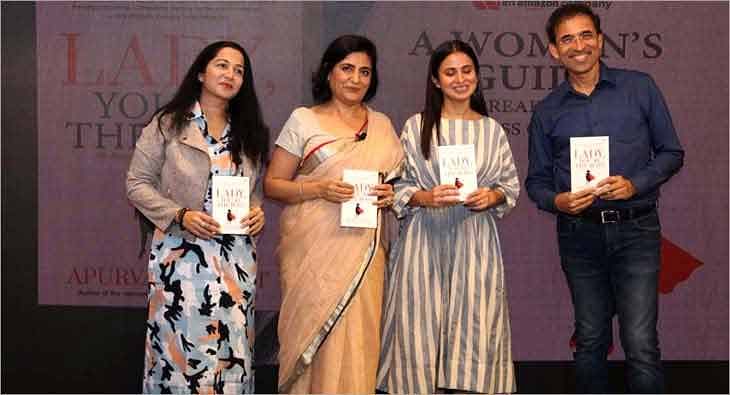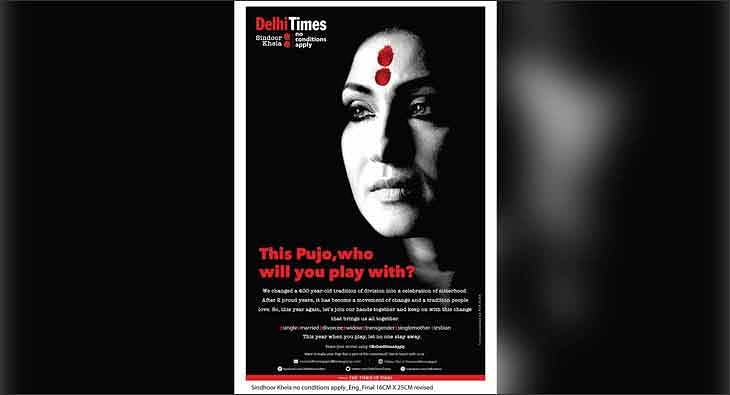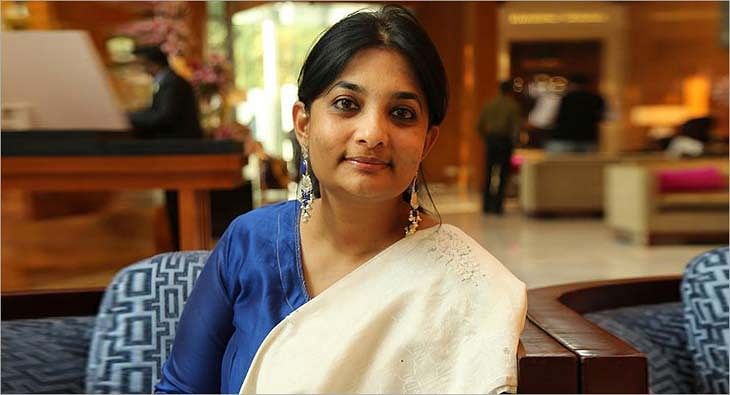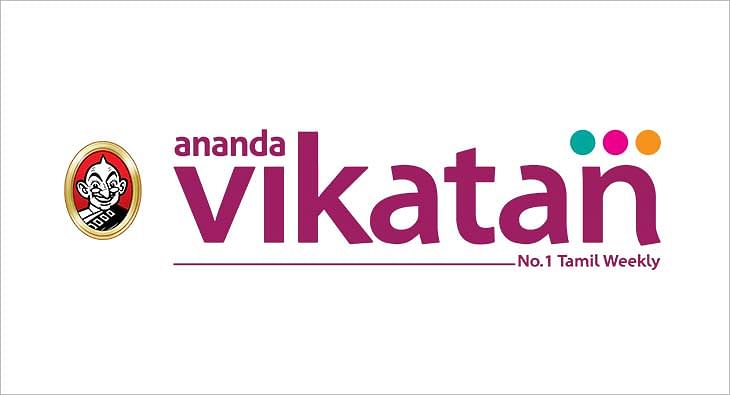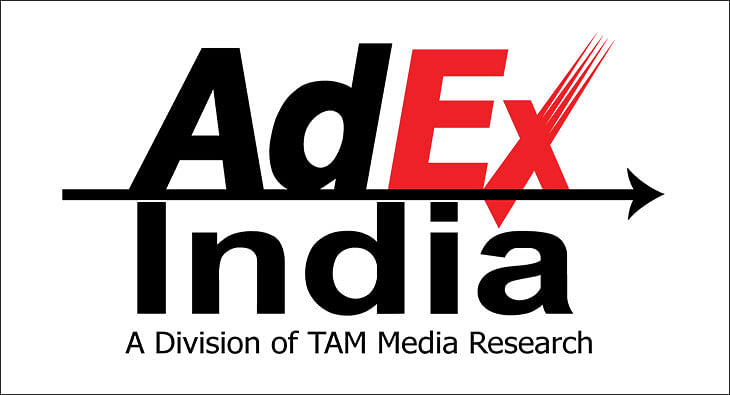FT v. FT: An attempt to colonise the Indian Press?
The Times Publishing House's pitched legal battle with the Financial Times of UK is not merely one of commercial interests, but also of principles, with profound ramifications on the freedom of speech and expression for the Indian Press as a whole

The Times Publishing House’s pitched legal battle with the Financial Times of UK is not merely one of commercial interests, but also of principles, with profound ramifications on the freedom of speech and expression for the Indian Press as a whole.
The very existence of the Indian Press lies in grave danger. The Supreme Court of India is faced with a landmark case that involves legal questions of such profound constitutional importance, that the outcome will not only affect every consumer of news in India, but it will also determine the future of long-established Indian newspapers.
Although the legal battle concerns two private entities, the issues that emerge have a direct bearing on the freedom of speech and expression enshrined in Article 19(1) (a) of the Constitution. This two-decade-long litigation is being fought between the multi-billion pound publishing behemoth, the Pearson Group which owns the Financial Times – UK (FTL), and the Times Publishing House Ltd.[1] which publishes a registered newspaper in India with a similar title.
The bone of contention between the two publishers is extremely straightforward. To publish a newspaper or a magazine in India, every publishing house needs to comply with the rules prescribed under the Press & Registration of Books Act; a special law enacted with the purpose of preserving and regulating newspapers published in India. Registration under this law is a mandatory requirement which confers an exclusive right upon the publisher to publish under a particular title – such as the Financial Times, a right which Times Publishing House (TPH) claims to have acquired, as far back as 1984. The paper claims to have reached a circulation of about 2 lakh copies per issue, at times.
However, the Pearson Group which is headquartered in London, claims ownership over this title on the basis of a Trade Mark which they belatedly registered in India[2], and subsequently lost[3] in a case before the Intellectual Property Appellate Board[4]. It was alleged that the FTL had acted unscrupulously, by misrepresenting facts[5] before the Indian Trade Mark Authority while attempting to register the newspaper title – ‘Financial Times.’
This assumed importance because no newspaper can be legally registered with the Trade Mark Authority, let alone published, unless the Publisher has first acquired a certificate from the requisite authority specified under the PRB Act. The Bangalore Court forcefully affirmed this view in their ruling.[6] Undoubtedly, this is perhaps the most crucial aspect of this dispute.
Admittedly, the FTL has never complied with the PRB Act, yet it seeks to carve out an exception for itself and publish a newspaper here in violation of Indian laws. Underscoring this reluctance to comply was a statement[7] made by the Managing Director of Pearson, who went on record to say that his company’s newspaper was “neither governed by Indian laws nor by the ethics prescribed by the Press Council of India or the Editors’ Guild.” Ironically, FTL claimed protection under the Indian Trade Mark laws while rejecting the Press laws that specifically regulate the publishing of newspapers in India – a colonial hangover, perhaps?
Since Independence, and even before it, the Financial Times-UK has barely had a presence in India. The paper was imported into India in miniscule numbers (at its peak about 300 copies), perhaps to buttress a future claim to the title. In the meanwhile, the domestic newspaper business in India flourished, with circulation increasing exponentially in nearly every corner of the country. The demand for more specialised papers soon emerged, and the market leaders stepped up to cater to the business community. The success of pink papers like the Economic Times and the Business Standard affirmed the view that specialised financial reporting was a profitable publishing business, and was clearly here to stay. Evidently, the lucre of this business opportunity was not lost on FT-UK, which tried myriad different ways to circumvent the PRB law and publish its content in India.
At the heart of it, this case involves a classic but well-settled principle of law - in a situation where two statutes ostensibly conflict with each other, which of the two should prevail? Should the special law take precedence over the general law, or vice-versa? Very recently, the Hon’ble Supreme Court[8] reaffirmed the established view that a general law must yield to a special law, especially if they operate in the same field and on the same subject. Thus, there is little doubt that the PRB Act takes precedence over the Trade Marks Act, effectively protecting the rights of the domestic newspapers from encroachment by imperialistic foreign publishing giants seeking to road-roll themselves into the Indian market.
In the event that FTL manages to convince the Indian courts and obtains exclusive ownership over the Financial Times brand in India, the ramifications for publishers of other Indian newspapers with similar British names would be severe. Established names like the Statesman, Tribune and the Telegraph would become instantly vulnerable to trade mark infringement suits in India by their British counterparts. Such a bizarre situation is extremely plausible, especially given the financial exigencies that most newspaper publishers in the UK are struggling to overcome. It would be absolutely abhorrent if India’s free press were to be re-colonised by British publishers looking to make commercial gains in India, thus flying in the face of the new Prime Minister’s ‘Make in India’ vision.
It is in this context that it becomes clear why TPH is defending an expensive and protracted legal battle against the Pearson Group. It would be fair to say that commercial interests alone are not at stake. Even a cynical observer will agree that there is a larger issue involved. After all, BCCL’s flagship business paper, the Economic Times, is now an established player. It is entrenched deep into the hearts of the business community and obviously faces no threat from a belated foreign entrant. Even legally speaking, no media house, including the Times Group, can prevent FTL from entering the Indian market under a different brand-name or by partnering with an Indian newspaper under a Joint-Venture agreement – an approach they’ve been free to take. However, what is entirely unacceptable in law and fairness, is this odious sense of entitlement that FTL has towards the Financial Times brand name. If, God-forbid, the Times Group should cede control of the brand-name to FTL, it would simply pave the way for foreign media companies to bully their way into India.
Besides, the UK based Pearson Group will also have to surmount a key exception to the guaranteed Freedom of Speech and Expression, which is a fundamental right guaranteed exclusively to Indian Citizens. The PRB Act upholds this exception[9], given the inherent security risks posed by a foreign entity controlling domestic reportage.
Whichever way this case ultimately swings, it is safe to say that the Indian Supreme Court will remain a steadfast champion of civil liberties, preserving and promoting natural human rights from the onslaught of conflicting commercial interests. Critics might argue that the constitutional guarantee of the freedom of speech is not so much for the benefit of the press as it is for the benefit of the public – but they must remain mindful that the Indian public will never accept a foreign invasion during their morning constitutional.
[1] It is a matter of record that a few TPH shareholders also hold shares in Bennett Coleman Co. Ltd., which is India’s largest media conglomerate.
[2] In the year 1993, as per Para 40; O.S. 7087/1993 decided on 24.09.2002 in the City Civil Court, Bangalore.
[3] The IPAB ordered the removal of Financial Times Limited’s (FTL) mark from the register as it was not able to prove use from 1948.
[4] http://www.ipab.tn.nic.in/091-2012.htm.
[5] O.S. 7087/1993 decided on 24.09.2002 in the City Civil Court, Bangalore at Para 13.
[6] Id. at Para 148.
[7] Id. at Para’s 127 & 128.
[8] (2014) 8 SCC 319, CTO v. Binani Cements Ltd.
[9] Section 5 of the Act; “Rules as to publication of newspapers’: No [newspaper] shall be published in [India], except in conformity with the rules hereinafter laid down…”
Jai A. Dehadrai
The author graduated with a master’s degree from UPenn and is attached to a judge of the Indian Supreme Court as his judicial law-clerk. His recently published book, Aequabilis, discusses landmark decisions of the former CJI, R.S. Pathak. He has an academic interest in issues pertaining to free-speech and IPR. He is not involved, in any capacity, with the FT/TOI litigation.
Disclaimer: The opinions expressed within this article are the personal opinions of the author,exchange4media is not responsible for the accuracy, completeness, suitability, or validity of any information on this article. All information is provided on an as-is basis. The information, facts or opinions appearing in the article do not reflect the views of exchange4media and exchange4media does not assume any responsibility or liability for the same
Read more news about (internet advertising India, internet advertising, advertising India, digital advertising India, media advertising India)
For more updates, be socially connected with us onInstagram, LinkedIn, Twitter, Facebook Youtube & Whatsapp
DNA to shut down Mumbai and Ahmedabad print editions
The publication said it will now be 'focussing on its online brand which has grown manifold in the digital space'
Daily News and Analysis (DNA) on Wednesday announced that it will be shutting down its print editions in Mumbai and Ahmedabad. In February this year, the Zee Media Group-owned English daily shut down the Delhi edition. The Pune and Bengaluru editions were shut in 2014.
Announcing the decision in an ad in the newspaper, it was said DNA will be focussing on its online brand which has grown “manifolds in the digital space”.
It said that its “readers especially the younger audience preferred reading on their mobile phones. “We thank each one of you for the print readership over the past 14 years. The print publication for Mumbai and Ahmedabad will be ceased effective 10th October 2019, Thursday till further notice,” read the announcement.

Talking about the development, a former editor of the newspaper shared, “They conducted a town hall meeting to update their existing employees about the news of shutdown.”
Read more news about (internet advertising India, internet advertising, advertising India, digital advertising India, media advertising India)
For more updates, be socially connected with us onInstagram, LinkedIn, Twitter, Facebook Youtube & Whatsapp
I hope my book helps women maximise their potential: Apurva Purohit
Purohit, President, Jagran Prakashan, launched her new book 'Lady You’re the Boss' at an exclusive gathering attended by Madhukar Kamath, Shashi Sinha and Saugata Gupta, among others
Apurva Purohit, President, Jagran Prakashan, launched her new book 'Lady You’re the Boss' at an exclusive gathering of industry bigwigs and friends at the Arth Lounge in Khar, Mumbai on September 26. The book follows Purohit's very successful first book, 'Lady, You’re not a Man – The Adventures of a Woman at Work', which is in its 21st edition now.
Published by Westland Publications, an Amazon company, 'Lady You're the Boss' draws from Purohit’s personal experiences and lays down a plan of action for women to persevere and reclaim their true potential, without minimizing themselves in any way.
It addresses the process of working women transitioning from mid-management to senior leadership roles and aims to empower women across sectors and organizations, encouraging them to work their way to the corner office, consciously defeating those internal and external biases that stop many a working woman from chasing her dreams.
Actor Divya Dutta, cricket commentator Harsha Bhogle and Purohit herself read out chapters from the book at the event while Karthika VK of Westland Publications spoke of the experience of publishing the book.
Talking about the book, Saugata Gupta, MD and CEO, Marico, who was present at the launch, said, “We are very lucky that there are many women in the Indian corporate world who can break the glass ceiling. This book will be an interesting read. I have a daughter who’s very achievement-oriented too and I always encourage diversity in the workplace."
“I’m really looking forward to reading this book, going by the excerpts Apurva and the rest have read out today. Most importantly, it’s not pretentious, but sounds like something that would inspire everyone," said Abhijit Avasthi, Co-founder, Sideways.
Thanking the audience present at the launch, Purohit said, “I really appreciate that all my friends, colleagues and family are present here. Thanks also to my wonderful team. I’m hoping that this book will help all kinds of women realise their worth. When young girls grow up, they don’t know how to stand up because they sometimes feel incompetent. I’m hoping that 'Lady You’re the Boss' will help women maximise their potential and live up to all the dreams they’ve had.”
Madhukar Kamath, Emeritus, DDB Mudra, Shalini Kamath of SK & Associates, Vivek Sharma and Bharat Puri of Pidilite Industries, Shashi Sinha of IPG Mediabrands India, Ramesh Narayan of IAA, Pawan Bansal of Jagran Engage, Kartik Kalla of Radio City, Joe Thaliath of FCB Interface, Anil Viswanathan of Mondelez Foods India and Sanjay Purohit, Group CEO, Sapphire Foods (who is married to Apurva Purohit) were among those present at the event.
Read more news about (internet advertising India, internet advertising, advertising India, digital advertising India, media advertising India)
For more updates, be socially connected with us onInstagram, LinkedIn, Twitter, Facebook Youtube & Whatsapp
TOI announces 3rd edition of #NoConditionsApply – Sindoor Khela campaign
Conceptualized to promote gender equality, the campaign calls for inclusion of women in celebrations and combats discrimination they face in terms of caste, marital status and sexual orientation
Two years ago, an initiative by The Times of India reinterpreted a 400-year-old tradition with the award-winning campaign #NoConditionsApply – Sindoor Khela. Conceptualized to promote gender equality, the campaign calls attention to the issue of inclusion of women in celebrations and combats the discrimination that they face in terms of their caste, creed, marital status, sexual orientation etc. The campaign won accolades in India and abroad.
In its 3rd year, #NoConditionsApply – Sindoor Khela initiative aims to reach the corners of the nation and beyond spreading this message of inclusive celebration that celebrates womanhood sans any discrimination based on ‘labels’ and societal barriers.
The campaign that was conceptualized in 2017 and was organized for one pandal in Kolkata. The Times of India along with the puja committee of Tridhara Sammilani, which is also one of the oldest and most prestigious puja pandals in Kolkata, organized the first ever inclusive Sindoor Khela – which invited widows and transgenders to be a part of this grand celebration.
What started with a single pandal celebration, went on to become a national movement with participation from over 100 pandals in 2018. The campaign hopes the movement will achieve the status of a global phenomenon this year. Owing to the widespread popularity of the campaign in its previous two editions, TOI has been getting several requests of extending the campaign to newer cities.
This year, the campaign spreads its wings across the country and beyond, and #NoConditionsApply encourages readers to host an inclusive Sindoor Khela and celebrate along with all sisters irrespective of the labels society may have attached to them.
The campaign urges patrons to bring a sister along to the celebration – sister being used metaphorically for any women they know of in their family, friend and neighbourhood, who have been shunned to be a part of the celebration.
The campaign asks the patron to invite their lesbian sister, transgender sister, widowed sister, divorcee sister, single mother sister to the celebrations this year. Since its inception, the campaign has witnessed phenomenal support worldwide from people who wanted to offer their support and be a part of the movement.
Garnering support from Kolkata’s agents of change - Rituparna Sengupta, Gargee Roychowdhury, Manobi Bandyopadhyay and Sohini Sengupta the campaign extends an invitation to women to #BringaSisterAlong this Pujo. With the phenomenal success of its previous editions, garnering 718 mn reach over the past 2 years, the latest edition aims to extend inclusion not just in Sindoor Khela but across all celebrations as part of the fabric of our tradition.
Commenting on the launch, Sanjeev Bhargava, Director, Brand TOI, said, “The #NoConditionsApply – Sindoor Khela campaign is extremely special to all of us, owing to the change that it has fostered across the various communities in India. While it is contextualized to a Bengali cultural event, the message of inclusive celebration and sisterhood resonates with everyone. We have always left no stone unturned in spreading the message across the various strata of society. Our success lies not in the awards that this campaign has garnered but in the fact that the initiative has grown from strength to strength and is rapidly becoming a symbol of inclusiveness. We are grateful for the overwhelming response we have received from women across the country who have shared their celebrations with us. The fact that it is back for the third time is testament to the widespread movement that the campaign is now. I thank everyone who has supported us in making the change happen.”
Speaking about the campaign, Swati Bhattacharya, Chief Creative Officer, FCB Ulka said, “This piece of work has been a big emotional milestone for me personally. This bloodless coup of a campaign shows the world that joy love friendship and beauty can help break down walls an inclusive Sindoor Khela shows us that sisterhood is one of biggest ideas that can change the world we live in.”
Read more news about (internet advertising India, internet advertising, advertising India, digital advertising India, media advertising India)
For more updates, be socially connected with us onInstagram, LinkedIn, Twitter, Facebook Youtube & Whatsapp
We’re aggressively driving partnerships across the ecosystem: Archana Anand, ZEE5 Global
Anand, Chief Business Officer, ZEE5 Global, tells us about the platform's partnership with Google and the markets the brand is most upbeat about
From being one of the most downloaded OTT apps in places like Bangladesh and Sri Lanka to curating content especially for the global audience, ZEE5 is upbeat about their global roadmap. Archana Anand, Chief Business Officer at ZEE5 Global talks about the markets the brand is most upbeat about. ZEE5 also brought Google on board to help them achieve maximum reach globally. Google did a thorough market analysis of the audiences interested in the content that was owned and created by ZEE.
ZEE5 seems to have ranked as the No 1 entertainment app in key markets within weeks of its launch. Can you please elaborate on the markets?
Bangladesh and Sri Lanka were among the key SAARC markets where we galloped to the No 1 position, that too within a few weeks of launch. We launched ZEE5 across 190+ markets in Oct 2018 and rolled out our marketing campaign a few weeks later in Jan 2019 across select markets in APAC. Our immediate priority was to establish ourselves firmly as the largest and most comprehensive destination for Indian entertainment, especially in SAARC countries where our content has the highest direct affinity. We used inputs from local market specialists and extensive market insights to create very specifically targeted media campaigns basis for various benchmarks to achieve quick market penetration with rapid awareness and usage. All this and more resulted in ZEE5 becoming the No. 1 entertainment app across key markets in SAARC including Bangladesh and Sri Lanka within just a few weeks of launch, and now we look to replicate this success story across other markets soon too.
You are also one of the first OTT platforms from India to customize Indian content for global audiences? Tell us about the markets you are upbeat about? What is the kind of content you are curating for the global audience?
As we deepened our presence across international markets, we realized that the huge love for Bollywood and Indian TV Shows is not restricted to Indians or even South Asians abroad, but is also huge among mainstream audiences. This was also supported by the insights from our local linear channel teams. Therefore, in April 2019, we launched a range of Indian content including Bollywood movies dubbed across 5 international languages, Bahasa Malay, Thai, Indo Bahasa, German and Russian, expanding our target audience beyond South Asians to mainstream audiences too across these markets, and while its early days, we are seeing a great response.
Any particular reason why Middle East is a strong market and you have done so many associations there?
The Middle East is a very exciting market for us as there is a huge Indian and South Asian community there which is already familiar with and loves our content across languages like Hindi, Malayalam, Tamil, Bengali, and others. We have a strong bouquet of content that’s striking a chord among the South Indian community in the market. There’s also a huge demand for Bollywood movies in the Middle East among local audiences too and our catalogue of 2000+ movies as well as our Originals, many of which have Bollywood stars, caters superbly to that demand. Our recent launches like Uri, Simmba, and Kedarnath among others have done really well as have our Originals like Kaafir, The Final Call, and Poison etc, n fact the Middle East was the first of the three markets that we kicked off our new campaign ‘Full On Entertainment’ in, through various on-ground events. Our recent partnerships with Eurostar and the LuLu Group are only the first of many and we have some very key telco partnerships also in the pipeline.
You have also roped in Google as a consulting partner to build their global strategy and execution plan. Tell us more about the partnership. What exactly would be Google’s role?
Launching globally across 190 countries required an in-depth understanding of the digital audiences across the markets, especially the far-flung ones. Prioritizing our key markets to ensure that we drive clear wins out of them was going to be an important task at hand for us and Google was the obvious choice for us to partner with for our global rollout. As a consulting partner, Google did a thorough market analysis of the audiences interested in the content that was owned and created by ZEE and that threw up some very key insights. Those, along with inputs from local market specialists and our own business teams were used to create media plans and strategies basis the benchmarks.
Every OTT platform now also has telecom partners, while we know you have partnerships with Airtel in India do you have any such tie-ups with international players too since you are aggressively promoting your platform globally?
Absolutely - we’re very aggressively driving partnerships across the ecosystem. Since our launch in October 2018, we have built out a slew of strategic partnerships in every key market like Dialog in Sri Lanka, Celcom in Malaysia, Robi Axiata in Bangladesh and others. We’ve also partnered with Apigate for multiple markets, and with Zeasn and Netrange for their Smart TV range. We’re also building out a strong offline presence in key markets like the Middle East with our partnerships with key retailers like the LuLu Group and Eurostar. We have multiple partnership announcements also coming up over the next several weeks including our first in Australia.
Read more news about (internet advertising India, internet advertising, advertising India, digital advertising India, media advertising India)
For more updates, be socially connected with us onInstagram, LinkedIn, Twitter, Facebook Youtube & Whatsapp
Vikatan Group revamps print portfolio
As part of its restructuring exercise, the print bouquet has been realigned as core magazines and special interest magazines
As part of its restructuring exercise, the Vikatan group has revamped its print portfolio with a sharper focus towards its content reorientation. The print bouquet has been realigned as core magazines and special interest magazines.
The core magazine bouquet consists of the 93-year-old ‘Ananda Vikatan’, weekly magazine in Tamil, which has a Total Readership (TR) of 33.94 Lakhs (IRS 2019, Q2); ‘Aval Vikatan’, fortnightly women’s Tamil magazine, with readership (TR) of 13.26 Lakh (IRS 2019, Q2); and ‘Junior Vikatan’, bi-weekly, Tamil Socio-political magazine.
The special interest magazine bouquet includes, ‘Nanayam Vikatan’, (TR of 3.46 Lakh / IRS 2019Q2), a personal finance & entrepreneurship magazine; ‘Pasumai Vikatan’, (TR of 8.55 Lakh / IRS 2019Q2), a magazine devoted & focussed to the organic farming and inclusive farm practices; ‘Motor Vikatan’, (TR 3.72 Lakh / IRS 2019Q2), auto magazine in Tamil; ‘Sakthi Vikatan’, (TR of 4.88 Lakh / IRS 2019, Q2), the spiritual magazine about the religious culture and heritage of the land, and ‘Aval kitchen’, the brand extension of ‘Aval Vikatan’ Magazine focusing on food, recipe and kitchen.
In the process, two of its print titles, ‘Vikatan Thadam’ & ‘Doctor’ Vikatan has been shelved from September 2019, while ‘Aval Manamagal’, the quarterly bridal magazine has been converted as an advertiser driven publication in the B2B route and ‘Chutti Vikatan’, the children’s magazine will take a completely new format to directly engage with schools and children.
Their content on literature, health & wellness, bridal fashion & shopping, and children-focussed content will be seamlessly integrated in print & digital platforms.
“After immense deliberations on content and market acceptability, we have restructured our print portfolio and two titles have been shelved and amongst two others, ‘Aval Manamagal’ has been migrated to AFP model, while ‘Chutti Vikatan’ has been contextualized to the children & school ecosystem” said, B Srinivasan, Managing Director, Vikatan Group, “The content will be seamlessly integrated with the rest of the magazines. Vikatan management remains fully committed to all other group magazines.”

Read more news about (internet advertising India, internet advertising, advertising India, digital advertising India, media advertising India)
For more updates, be socially connected with us onInstagram, LinkedIn, Twitter, Facebook Youtube & Whatsapp
Print sees 8% rise in ad volume in Q2 2019 compared to Q1 2019: TAM Adex
There has been a 15% rise in ad volume from the Education sector in Q2 2019
While there has been an 8% indexed growth from Q1 to Q 2 2019 in the Print medium, it’s the Education sector that has increased its share dramatically as per TAM Adex data. From 11% in the first quarter, the sector has managed to increase its share of ad volumes to 26% in the second quarter. However, Auto declined to 13% from 17% while Services went down from 18% to 14%.
If we compare the first half of 2018 to the first half of 2019, Education has managed to take the top spot in both the years. Although the shares went down by 1% from 2018 to 2019, it is still the top sector. Auto gained 1% more share bringing it to 16% from 15% in 2018. Ad volumes have dropped considerably from H1 2018 to H1 2019 by 6%. All other sectors have gone down by 1%.
Allen Career Institute and Aakash Medical College Maruti Car range, Hero Two-wheelers, Indira Infertility & Test Tube Baby Centre and Homecare International are the major brands in the first half of this year. However, the overall indexed growth of ad volumes has fallen by 7% in the first half of 2019 compared to H1 2018.
Read more news about (internet advertising India, internet advertising, advertising India, digital advertising India, media advertising India)
For more updates, be socially connected with us onInstagram, LinkedIn, Twitter, Facebook Youtube & Whatsapp
Delhi High Court restrains publication of defamatory content against EbixCash by Viceroy
The Court issued a dynamic injunction restraining publication or republication of certain defamatory articles against EbixCash by US-based Viceroy Research Group
The Delhi High Court has issued a dynamic injunction order restraining publication or republication of the contents of certain defamatory articles against EbixCash and Ebix (Nasdaq:Ebix), by US- based Viceroy Research Group, Fraser Perring and other principals of Viceroy.
The court also directed the Times Group's ET Prime, to take down an article published July 31, 2019, since the article was largely based on statements made by Viceroy. The order also directed all the defendants including Viceroy, Fraser and all its principals not to publish any such content themselves or through their affiliates or agents or any other person acting on their behalf.
The issuance of a dynamic injunction by the Delhi High court is to be specially noted as a it implies that the next time any media or publication quotes Viceroy or Fraser or any of the contents of the banned piece by Delhi High court - “Goodwill hunting”; EbixCash will not need to approach the judge but just to reach out to the Registrar of court for taking down any such new article.
Delhi High Court had earlier issued an order on 8th May 2019, directing Twitter and Google to take down certain articles published by Viceroy Research Group.
In May 2019, EbixCash had approached the High Court with a plea that Viceroy Research Group had published certain articles on its website which contained defamatory information about the former. EbixCash had alleged that Viceroy Research, which holds “short selling” positions in the company and its sister concerns, was using these defamatory articles to drive down the price of the company, and thereby making profit from it.
Read more news about (internet advertising India, internet advertising, advertising India, digital advertising India, media advertising India)
For more updates, be socially connected with us onInstagram, LinkedIn, Twitter, Facebook Youtube & Whatsapp








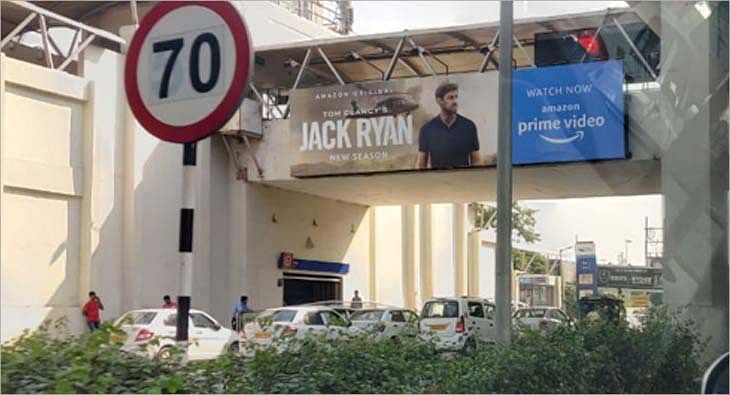





 Share
Share